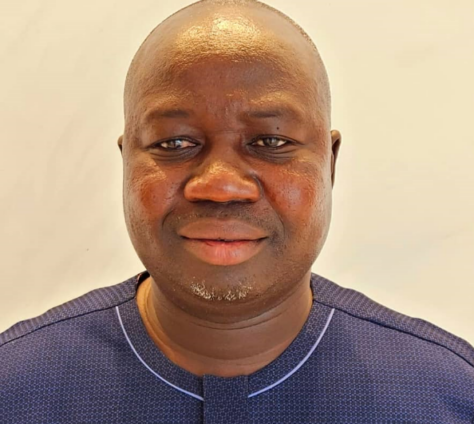The Human Sexual Rights and Family Values Bill, colloquially known as the Anti-LGBTQ Bill, has sparked intense debate and controversy within Ghanaian society. Advocates argue for the protection of traditional family values, while critics raise concerns about human rights violations and discrimination.
The Ghana Catholic Bishops Conference has advised the President to carefully consider necessary amendments to the bill before signing it into law. They emphasize the importance of balancing societal values with human rights considerations.
There is widespread concern about the posturing and attitudes of Ghana’s political leaders, particularly the Presidency and the Attorney General. Some view their stance as obstructive to the passage of the bill, despite widespread support from MPs.
Former Deputy Minister of State, Hon. Abu Kansangbata, urges the President to respect the views of MPs, religious leaders, including chiefs, imams, and the clergy, as well as other stakeholders. He highlights the importance of consensus in decision-making processes whenever and whenever possible.
Despite external pressures, such as the threat of aid cuts from the United States, Ghanaian MPs have demonstrated unwavering commitment to passing the bill, and they have passed it. Comparisons are drawn with Rwanda and Uganda, which have taken a firm stance on similar legislation. Calls are made on the President to do what is right and respect the position of the majority of Ghanaians by assenting to the bill. It is emphasized that the President has a responsibility to represent the will of the people and uphold democratic principles.
Hon. Abu Kansangbata highlights parliamentary procedures and constitutional provisions governing the passing of bills into law. He notes that if the President refuses to assent to the bill and refers the bill to the House with his comments or with the comments of the Council of State as stipulated by the Constitution, Parliament will require a two-thirds majority to pass an amended bill into law.
A call is made to the Speaker of Parliament to ensure transparency in the legislative process. It is imperative that Parliament that Parliament conducts open voting on the bill to demonstrate the stance of MPs to their constituents. An open voting would allow MPs to openly express their support or opposition to the bill, providing clarity to their constituents on their representatives’ positions. MPs will thereby show their constituents where they stand on the bill, allowing for accountability and transparency in the legislative process. This direct representation of constituents’ views can help foster trust and confidence in the democratic system.
Alongside these parliamentary processes, it is crucial to engage the public in discussions about the bill to ensure that their voices are heard. Public fora, town hall meetings, and other forms of engagement can provide opportunities for citizens to express their opinions and concerns directly to their representatives. Education and awareness campaigns play a pivotal role in shaping public perceptions and understanding of complex issues such as human rights and traditional values. Investing in comprehensive educational initiatives that promote the bill is key to public compliance with the bill once it is assented to by the President. Ensuring robust judicial review and oversight mechanisms is essential in safeguarding the rights enshrined in the Bill.
The Judiciary must play a proactive role in pronouncing on the constitutionality of the Bill to put an end to the threats of going to court on the Bill as if going to court is going to war.
Once the bill has been passed by Parliament and is assented to by the President, monitoring and evaluation will be essential to assess its impact on society. This includes tracking implementation progress, gathering feedback from affected communities, and making adjustments as necessary to address any unintended consequences.
The debate surrounding the Human Sexual Rights and Family Values Bill in Ghana reflects the broader tension between traditional values and human rights values. Adhering to democratic processes, engaging the public, considering international perspectives, and fostering dialogue and compromise, Ghana can navigate through this contentious issue with transparency, accountability, and respect for the rights of all its citizens.
At the end of the day, however, this is a Ghanaian law and it is Ghanaian human sexual rights and family values that must prevail.
Latest Stories
-
Paris 2024: Opening ceremony showcases grandiose celebration of French culture and diversity
3 hours -
How decline of Indian vultures led to 500,000 human deaths
4 hours -
Paris 2024: Ghana rocks ‘fabulous fugu’ at olympics opening ceremony
4 hours -
Trust Hospital faces financial strain with rising debt levels – Auditor-General’s report
4 hours -
Electrochem lease: Allocate portions of land to Songor people – Resident demand
5 hours -
82 widows receive financial aid from Chayil Foundation
5 hours -
The silent struggles: Female journalists grapple with Ghana’s high cost of living
5 hours -
BoG yet to make any payment to Service Ghana Auto Group
5 hours -
‘Crushed Young’: The Multimedia Group, JL Properties surprise accident victim’s family with fully-furnished apartment
5 hours -
Asante Kotoko needs structure that would outlive any administration – Opoku Nti
6 hours -
JoyNews exposé on Customs officials demanding bribes airs on July 29
6 hours -
JoyNews Impact Maker Awardee ships first consignment of honey from Kwahu Afram Plains
8 hours -
Joint committee under fire over report on salt mining lease granted Electrochem
8 hours -
Life Lounge with Edem Knight-Tay: Don’t be beaten the third time
8 hours -
Pro-NPP group launched to help ‘Break the 8’
8 hours

